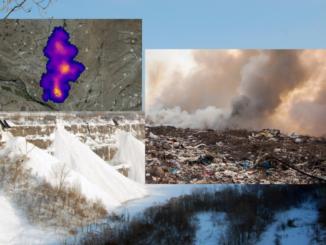TORONTO, ONTARIO- – CSA Group, a leading provider of standards development services, today announces that the third of four new standards to help address the impact of climate change in Northern Canada as part of the Standards Council of Canada (SCC) Northern Infrastructure Standardization Initiative (NISI) is now available for a 60-day public review online. The draft Managing Changing Snow Load Risks for Buildings in Canada’s North standard is available for public and stakeholder feedback by visiting http://publicreview.csa.ca.
Northern infrastructure is highly vulnerable to climate change issues such as degrading permafrost, as well as changes in temperatures and precipitation patterns that are leading to denser, heavier, wetter snow and causing greater loading on structures. To help address this issue, CSA Group announced in 2012 that it had been selected by SCC to develop four new standards as part of NISI, a joint project being led by SCC with support from Aboriginal Affairs and Northern Development Canada (AANDC). Through NISI, standards are being developed to address the effects of climate change on new infrastructure, as well as retrofits, maintenance and repairs to existing infrastructure.
Arctic regions have seen an increase in snowfall and extreme snow events. Adding to this issue is the occurrence of rain after a snowfall, which turns to ice and increases the weight or load of the snow on buildings and housing. This increased weight can result in structural damage, such as a collapsed roof. Research indicates that climate change will result in increased snow loads for northern regions. This impacts both existing infrastructure and any new buildings that are planned.
The objective of this standard is to inform communities for safe roof snow removal from existing buildings and to protect building occupants from overloading risks due to increasing accumulations and weights. Procedures that can reduce risks for roof and building collapses are outlined, including procedures for monitoring heavy snow and ice accumulations, safe removal of snow on roofs when needed and for maintenance and snow removal planning.
The other three standards in development by CSA Group as part of NISI include:
- Building in Permafrost supported on thermosyphon foundations;
- Moderating the effects of permafrost degradation on building foundations; and,
- Community drainage system planning, design and maintenance in northern communities
The standards developed as a result of this initiative will address current built infrastructure challenges, but will also contribute to reinforcing the fabric and quality of life in Canada’s North.
CSA Group procedures require that a standard be made available for a 60-day public review to permit individuals and organizations materially affected to have an opportunity to participate in its development. This helps ensure the standard reflects the consensus of opinion of experts and interested parties. Upon consideration of the feedback, decisions will be made on which changes are required, if any, before the standard is approved by CSA Group’s Northern Built Infrastructure (NBI) technical committee and then submitted to SCC. CSA Group appreciates and welcomes the involvement and feedback of affected individuals, organizations and stakeholders.
About CSA Group
CSA Group is an independent, not-for-profit membership association dedicated to safety, social good and sustainability. Its knowledge and expertise encompass standards development; training and advisory solutions; global testing and certification services across key business areas including hazardous location and industrial, plumbing and construction, medical, safety and technology, appliances and gas, alternative energy, lighting and sustainability; as well as consumer product evaluation services. The CSA certification mark appears on billions of products worldwide. For more information about CSA Group visit www.csagroup.org




Be the first to comment